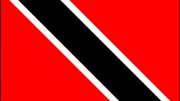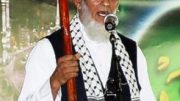As Indian Prime Minister Narendra Modi visits Trinidad and Tobago, three of the country’s most prominent Muslim organisations—Anjuman Sunnat ul Jamaat Association (ASJA), the Islamic Da’wah Movement (IDM) and the Islamic Missionaries Guild (IMG) —have released public statements condemning his administration’s treatment of Muslims in India. Collectively, they raised objections to the Government’s decision to grant PM Modi a state visit and bestow upon him the nation’s highest award, the Order of the Republic of Trinidad and Tobago (ORTT). Their remarks represent a rare and powerful stand of unified moral clarity, rooted in both Islamic values and civic responsibility.
ASJA: “We Cannot Remain Silent”
In a powerful and courageous statement released ahead of Indian Prime Minister Narendra Modi’s state visit to Trinidad and Tobago, the Anjuman Sunnat ul Jamaat Association (ASJA) has emerged as a rare voice of moral clarity and principled dissent.
In an era where many institutions opt for diplomatic silence, ASJA declared firmly:
“We cannot remain silent while human rights and religious freedoms are being trampled upon in the land of our forefathers.”
ASJA’s statement outlined grave concerns over PM Modi’s domestic policies in India, particularly those affecting religious minorities, including Muslims, Christians, and Sikhs. Referencing the 2002 Gujarat pogrom, the statement noted that Modi, then Chief Minister, was:
“accused of enabling the horrific anti-Muslim violence in Gujarat, resulting in the deaths of over a thousand people. Though cleared by India’s Supreme Court, many international human rights organizations and survivors continue to demand justice.”
The group also drew attention to recent legislative actions and rising authoritarianism:
“The Citizenship Amendment Act (CAA) discriminates against Muslims, and the revocation of Article 370 stripped Kashmir of its autonomy, deepening an already volatile situation.”
“Under his watch, human rights organizations have been shut down, dissenting journalists arrested, and India has plummeted in global press freedom rankings.”
What makes ASJA’s statement particularly resonant is its foundation in faith and ethical duty:
“As Muslims, we are taught to enjoin what is right and forbid what is wrong. Our conscience does not permit us to turn a blind eye to injustice anywhere in the world.”
This is not a statement of hatred, nor is it a form of political grandstanding. It is a faith-based appeal for justice, calling not only for awareness but for peaceful civic engagement:
“We urge our community to respond with dignity, not hostility. Let us educate ourselves and others about the reality of what is happening. Let us write, speak, pray, and act in ways that reflect the highest values of our faith.”
ASJA also noted the significance of Indo-Caribbean identity:
“We do not reject the heritage we share with the people of India. But we cannot welcome tyranny wrapped in tradition, nor celebrate leadership devoid of compassion.”
Islamic Da’wah Movement: “A Burning Issue That Must Be Addressed”
The Islamic Da’wah Movement (IDM) statement echoed many of ASJA’s concerns, describing Modi’s record as part of a pattern of “discrimination, prejudice, and violence” against India’s 200 million Muslims.
Quoting international organizations, the statement noted:
“The UN human rights office described India’s Citizenship Amendment Act as ‘fundamentally discriminatory.’”
And further:
“The Organization of Islamic Cooperation (OIC)… called on India to curb the ‘growing spate of hatred and defamation of Islam.’”
Calling on the UNC government to raise these concerns during bilateral discussions, the Da’wah Movement emphasized the values enshrined in Trinidad’s national anthem:
“Every creed and race finds an equal place… a value we need to persuade others to adopt.”
They concluded with a quote from Mahatma Gandhi:
“There is a higher court than courts of justice, and that is the court of conscience. It supersedes all other courts.”
Islamic Missionaries Guild: “This is Not the Kind of Leader We Should Celebrate”
Adding further moral clarity, the Islamic Missionaries Guild (IMG) issued a statement strongly condemning the decision to honour Prime Minister Modi, stating, “We believe this decision goes against the values of religious tolerance and human rights that define our country.”
IMG cited instances of Muslim homes being demolished, hate speech by BJP leaders, mob violence, and Modi’s failure to condemn lynchings or speak out for Palestinian civilians during the Gaza crisis:
“These aren’t the actions of a leader deserving our highest national honour.”
IMG also expressed dismay over the closure of schools and government offices for the ceremony, calling it a disruption that reflects misplaced priorities:
“Are we really shutting down our country to celebrate someone who has consistently undermined the rights of religious minorities?”
Echoing ASJA and IDM, the Guild called for faith-based consultation in future state recognitions and emphasized that diplomatic convenience must not override conscience.
A Unified Voice for Justice
While these three institutions represent different demographics within Trinidadian Islam, their statements reflect a common moral ground: the defence of oppressed peoples, the refusal to normalise religious discrimination, and a demand that diplomacy never come at the expense of truth.
Their collective message is clear: justice is not negotiable, and public silence is not neutrality—it is complicity.
Why This Matters
ASJA’s stance aligns with the concerns of human rights organizations, diasporic South Asian communities, and international observers. Yet few religious organizations have spoken as plainly.
In doing so, ASJA has offered a template for how faith, identity, and justice can align—not in confrontation, but in conscience.
What You Can Do:
- Read and share the full statements (links to each provided above). Let others know this moment of truth has not gone unnoticed.
- Initiate discussion within your own community or faith group.
- Reflect on the global responsibilities of diaspora communities in the face of injustice.
- Support organizations and individuals standing for justice, often at great personal or institutional cost.
Let this be remembered not only as a political visit, but as a moment when Trinidad’s Muslim leadership chose moral courage over convenience.
Background:
ASJA is historically the most prominent single Muslim organisation in Trinidad and Tobago, providing the community with leadership, guidance, maturity and stability, which has been responsible for recognition by the national community and successive Governments over the years since its humble, yet auspicious beginning in 1935. The vast majority of its membership trace their roots to British India, from which their ancestors were brought to Trinidad and Tobago as indentured labour for the sugar cane plantations. One layer of the membership’s identity is being of Indian heritage, which entails an ensuing empathy for their ancestral homeland.
IDM is an education and information organization that seeks to propagate the path of the Prophet Muhammad (s) teachings in a pluralistic context. Its membership comprises youthful Muslims eager to pursue authentic Islam. The IDM was formally established in 1983. However, its origin can be traced back to the formation of the Islamic Trust (1976), and the untiring efforts of Abdul Wahid Hamid, Zabar Baksh, Hydar Ali, Dr Pasha, Ahmad Ehwass, and a core of Muslims drawn from both the traditional Muslim community and a mix of revertees from the broader non-Muslim society.
The Islamic Missionaries Guild of The Caribbean and South America is a Muslim Organization founded by the late Maulana Fazlur Rahman Ansari. The Guild’s main purpose is to teach Muslims and to share Islam’s perspective with other faith groups and those without faith.




